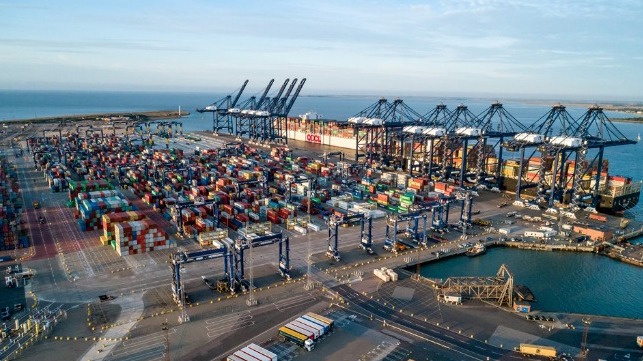Shipping Industry Pushes for $5B Decarbonization Fund

Shipowning organizations from the Group of Seven (G7) nations have vowed to spearhead the establishment of a $5 billion research and development (R&D) decarbonization fund, and have called for contributions from governments.
The "maritime seven" (M7) include the shipowners' associations of the G7 plus those from Australia, India, South Africa and South Korea. Together, they have called on the world's governments to back the fund, which would finance the development of technologies for a cleaner and greener shipping industry.
“We fully support the need to decarbonize and if the industry is to meet its goal of zero carbon emissions by 2050, large-scale investment in research and development is necessary as without this we simply will not have the technologies needed for the greener, cleaner shipping industry that we all want,” said John Denholm, President of UK Chamber of Shipping following a meeting of the M7.
The push for the fund comes hot on the heels of the G7 summit in Cornwall, England, in which leaders of the world’s biggest economies committed to protect the planet by supporting a green revolution that creates jobs, cuts emissions and seeks to limit the rise in global temperatures to 1.5 degrees.
The leaders also committed to net zero emissions no later than 2050, halving collective emissions over the two decades to 2030, increasing and improving climate finance and conserving or protecting at least 30 percent of land and oceans by 2030.
“In our transport sectors, we commit to sustainable, decarbonized mobility and to scaling up zero emission vehicle technologies, including buses, trains, shipping and aviation,” said the G7 leaders in a joint statement.
While funding has been identified as of the major challenges in decarbonizing the shipping industry, governments, companies and industry stakeholders have been reluctant to commit funds to R&D, despite repeated calls for the establishment of a fund. The Maritime and Port Authority of Singapore (MPA) has independently established a $90 million fund for a decarbonization center and financing of R&D projects.
Despite being responsible for 90 percent of global trade, the shipping industry is grappling with increasing criticism for being one of the biggest carbon emitters. International Maritime Organization (IMO) studies show the industry emits around 940 million tons of carbon dioxide annually and is responsible for about 2.5 percent of global greenhouse gas (GHG) emissions.
The emissions are projected to increase significantly if mitigation measures are not put in place swiftly. Under a business-as-usual scenario, shipping emissions could increase between 50 percent and 250 percent by 2050, undermining the objectives of the Paris Agreement.
To avoid this situation, the IMO has adopted a strategy to reduce GHG emissions from ships with a target of cutting total annual GHG emissions by at least 50 percent by 2050 compared to 2008.
The drive to make the shipping industry cleaner is gaining momentum: recently, a group of 23 leading maritime companies and organizations signed a memorandum of understanding for a ‘joint study’ to examine common issues on ammonia as an alternative marine fuel. New alternatives like green ammonia and green methanol will be necessary in order to meet the IMO’s decarbonization targets.

that matters most
Get the latest maritime news delivered to your inbox daily.
The study also aims to support the development of ammonia-fueled vessels and the development of a worldwide ammonia supply chain.
“Ammonia is seen as a promising future fuel for shipping from an emissions reduction and scalability perspective. However, safety, technology maturity and affordability remain key challenges which we need to overcome,” said Jérôme Leprince-Ringuet, TotalEnergies Vice President Marine Fuels.
